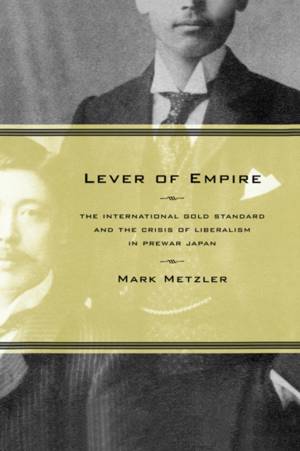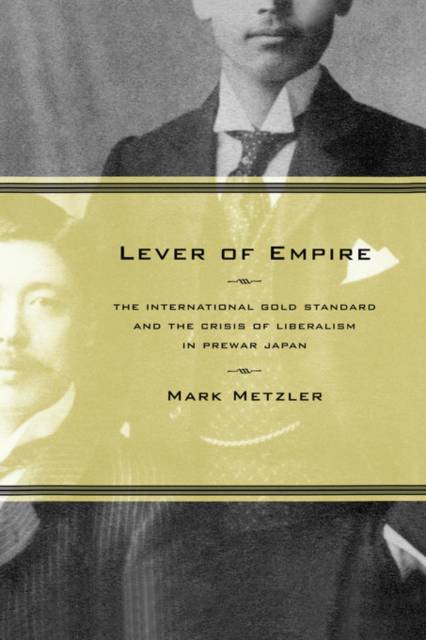
- Afhalen na 1 uur in een winkel met voorraad
- Gratis thuislevering in België vanaf € 30
- Ruim aanbod met 7 miljoen producten
- Afhalen na 1 uur in een winkel met voorraad
- Gratis thuislevering in België vanaf € 30
- Ruim aanbod met 7 miljoen producten
Zoeken
Lever of Empire
The International Gold Standard and the Crisis of Liberalism in Prewar Japan Volume 17
Mark Metzler
€ 144,45
+ 288 punten
Omschrijving
This book, the first full account of Japan's financial history and the Japanese gold standard in the pivotal years before World War II, provides a new perspective on the global political dynamics of the era by placing Japan, rather than Europe, at the center of the story. Focusing on the fall of liberalism in Japan in late 1931 and the global politics of money that were at the center of the crisis, Mark Metzler asks why successive Japanese governments from 1920 to 1931 carried out policies that deliberately induced deflation and depression. His search for answers stretches from Edo to London to the ragged borderlands of the Japanese empire and from the eighteenth century to the 1950s, integrating political and monetary analysis to shed light on the complex dynamics of money, empire, and global hegemony. His detailed and broad ranging account illuminates a range of issues including Japan's involvement in the economic dynamics that shook interwar Europe, the character of U.S. isolationism, and the rise of fascism as an international phenomenon.
Specificaties
Betrokkenen
- Auteur(s):
- Uitgeverij:
Inhoud
- Aantal bladzijden:
- 396
- Taal:
- Engels
- Reeks:
- Reeksnummer:
- nr. 17
Eigenschappen
- Productcode (EAN):
- 9780520244207
- Verschijningsdatum:
- 13/03/2006
- Uitvoering:
- Hardcover
- Formaat:
- Genaaid
- Afmetingen:
- 164 mm x 235 mm
- Gewicht:
- 689 g

Alleen bij Standaard Boekhandel
+ 288 punten op je klantenkaart van Standaard Boekhandel
Beoordelingen
We publiceren alleen reviews die voldoen aan de voorwaarden voor reviews. Bekijk onze voorwaarden voor reviews.











